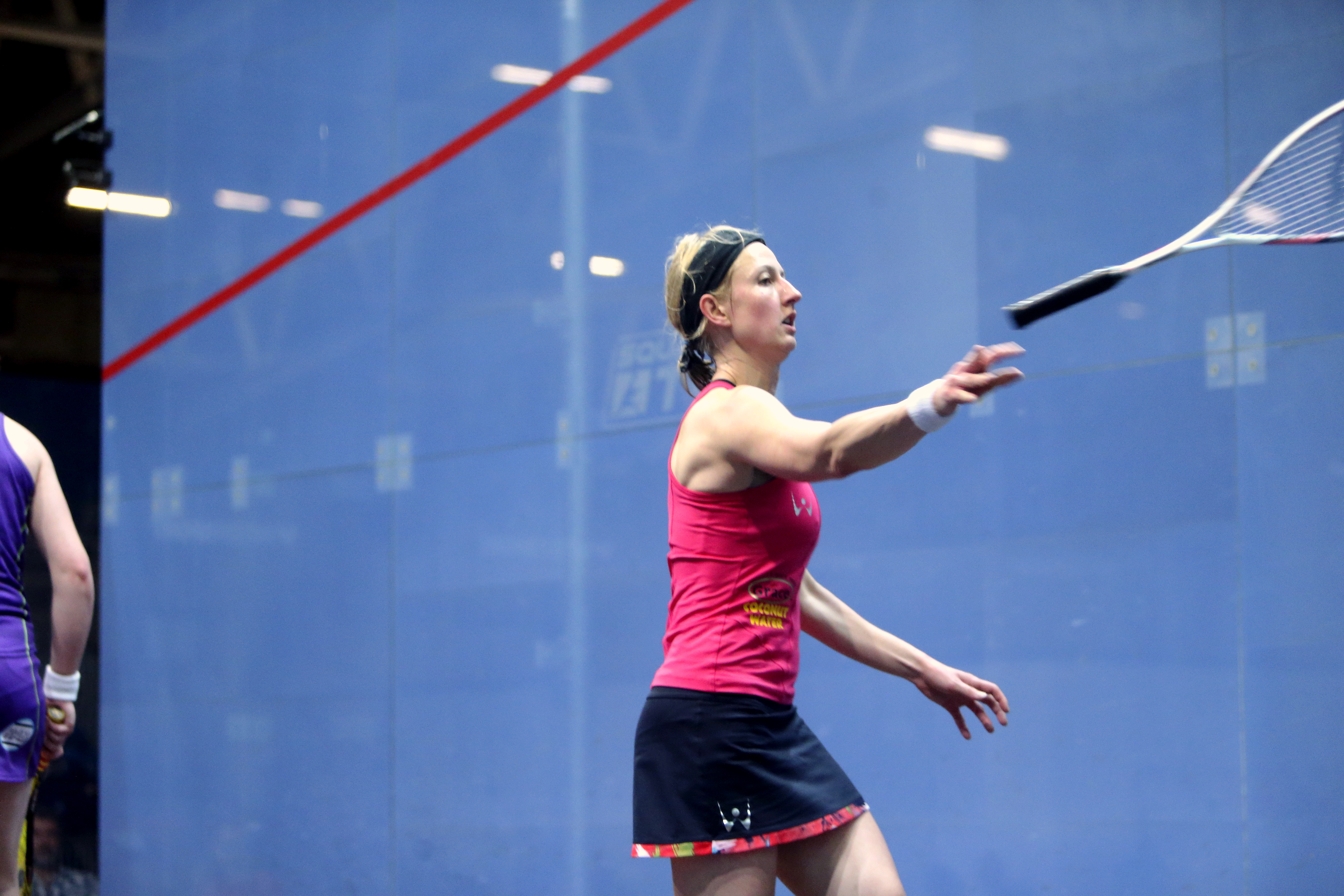
By Damon Leedale-Brown, Sports Scientist & Conditioning Specialist
In the previous article we discussed mental preparation in the build up to a match including using the warm up effectively to achieve a goal-orientated/play to win mindset at the start of every match.
Let’s now consider areas we can focus on, and mental strategies we can use, to help keep us in the positive goal-orientated mindset as the match progresses:
- Keep Moving Forward and not Looking Back—You will make some errors and at times poor shot choices—learn from these and move on—don’t dwell on them any longer than necessary.
- From Negative to Positive—For many players the first response to a “perceived” bad rally or period of play is a negative one—“This is awful; I am playing terribly” etc. It is not unusual to see this manifest itself as a verbal or even physical outburst—players hitting themselves, throwing their racquet. No part of this reaction is allowing you to move forward positively into the next rally and, in many cases, simply compounds a gradual downward spiral and loss of emotional control. Try to counter any negative reaction with a positive action or statement that gives you something to focus on and helps turn things around. For example: “My length is falling short—I need to use more height on the front wall;” “I am overplaying my angles into the front—I need to straighten up;” or “I have got to keep pushing forward onto the ball whenever I can.”
- Refereeing Decisions Against You—in most cases these will be balanced out by decisions in your favor so take the rough with the smooth and continue to focus on your performance and game execution.
- Hurry, Slowly—When players get anxious and over aroused on court, they typically go into a rush and react mentality. They are no longer hitting shots with any sense of purpose—merely reacting to their opponent’s game, and their movement lacks any sense of control or structure. If you feel this happening try taking some deep breaths, slow down, refocus and reset your mind—focus on being more efficient with your movement and more purposeful with your shots.
- Try Easier—When athletes tense up under pressure, they tend to try harder and force things out which, in most cases, is counter-productive. It is almost impossible to move and hit freely with any sense of flow and feeling when the muscles are tense and the body is effectively fighting against itself. The relaxation in the body is driven by the mind, and sometimes the hardest part is learning to let go with the mind, try easier, and let the tension release from the body.
- Trust your stuff—On a squash court you are, in most cases, better off hitting the wrong choice of shot with 100% conviction than the right choice of shot with indecision and lack of belief. If there are doubts in your mind, this will lead to a lack of conviction in your shots, typically resulting in more execution errors. Practice is the time to be analytical and to train your mind as well as your body. Competition is the time to switch from the overly analytical thinking mode to the trusting and feeling mode.
- Momentum Shifts—Squash is a game where the momentum can very quickly shift from one player to another, and it is not usual to see this happen numerous times throughout a match. Expect to have performance and mental “bumps” along the road. How quickly you are able to regroup, get back on track and into the “play to win mindset” could be the difference between winning or losing a closely fought match.
Good luck, and I hope you are able to use some of the strategies and techniques discussed to help you stay in a goal-orientated and “play to win” mindset for longer periods in every match you play, which should naturally increase your chances for success!





